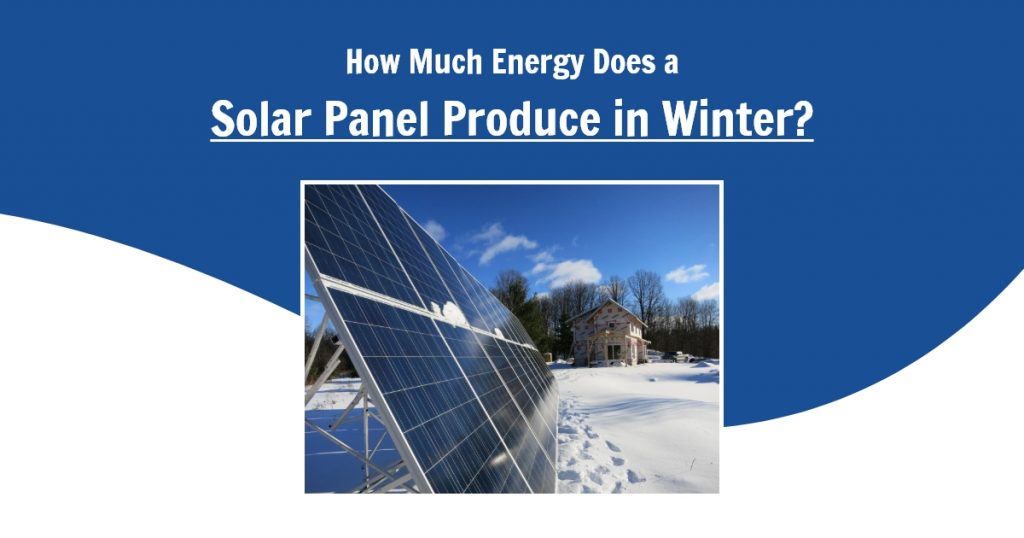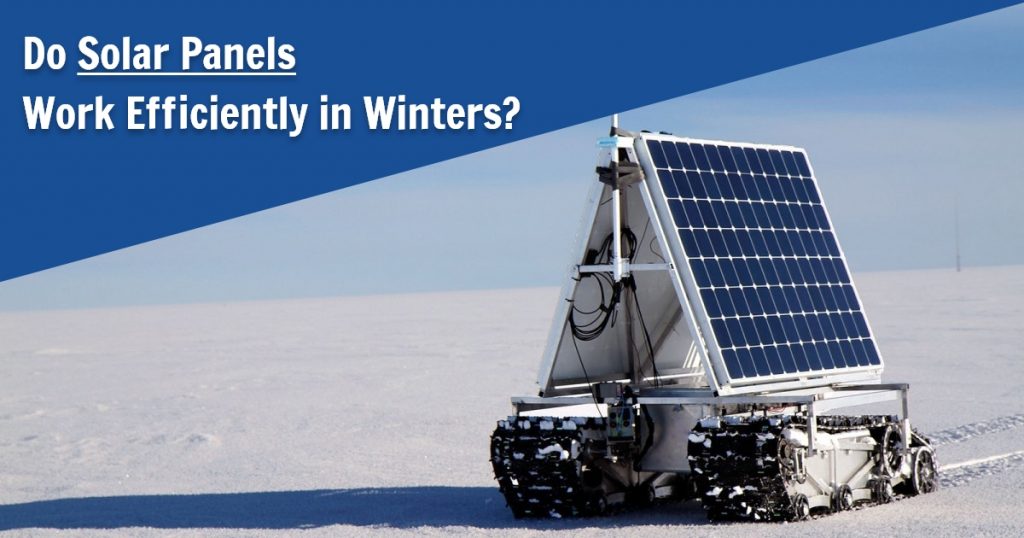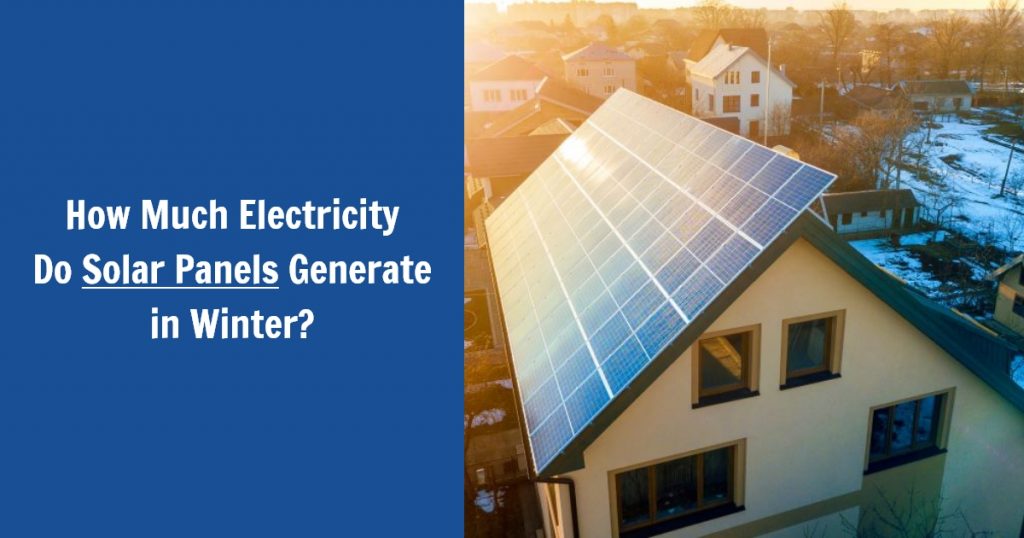How Much Energy Does a Solar Panel Produce in Winter?

Most of us are aware that solar panels work anywhere there is sunlight, but what factors influence how much electricity they create and how efficiently they operate in the winter? Is the efficiency of a solar panel determined by the temperature or the amount of direct sunlight?
Let’s dive in.
How do solar panels make energy?
Solar PV cells (or solar photovoltaic cells) generate power from daylight rather than sunlight or heat, and they’re built of semi-conducting materials, most often silicon. When light shines on them, it causes electrons to flow, resulting in electricity. That implies Solar Panel Power produced in Winter during the day but not at night (but this isn’t a problem if you have a battery, so keep reading).
Stronger sunlight means more electricity because solar PV cells respond to light. On a clear sunny day, your solar panels will receive the most light around midday, when the sun is highest in the sky and the light is brightest. Even the dim light of a dreary winter afternoon, though, releases enough energy to generate electricity.
Do Solar Panels Work Efficiently in Winters?

There is a common misconception that Solar Panel Installation in the Winter Season does not work. however this is not the case! In fact, the cold temperatures boost solar panel output, making the winter months ideal for solar energy production.
You might be asking why it is. In cooler climates, solar panels are more efficient than in hot climates. During the colder months, the photovoltaic (PV) technology in your solar panel will convert sunlight to power more efficiently.
This implies that for each hour of sunlight received during the day, your solar panels will create more energy, which is ideal for those shorter, chilly winter days!
Also Read – Do Solar Panels Work in the Winter Season in California?
How do solar cells work?
It’s crucial to understand how solar cells work for home solar power installation in order to comprehend why they’re still useful in the winter. Photovoltaic (PV) cells, which are specific units often composed of silicon, make up solar panels.
Electrons in these PV cells are activated when photons, or light particles, collide with them. Within the cell, this energy is transformed into usable electric current.
Cold temperatures: Solar panels, as we’ve seen, rely on the sun’s light rather than its heat. Solar cells, like other electrical products, work best in lower temperatures. Surprisingly, too much heat can reduce the efficiency of the cells. Solar cells will produce more power on a chilly bright day than on a hot bright day.
Snow: Very cold weather has the potential to be a disadvantage for solar panels. Until the snow is gone, the sun’s rays will be blocked from reaching the solar cells. Fortunately, as it heats up, a small quantity should melt and slide off the smooth surface. Snow won’t stick to solar panels as it would to other materials since they are pointed towards the sun.
Also Read – The durability of Solar PV Photovoltaic Panels during Hurricanes and Hail Storms?
How Much Electricity Do Solar Panel Generate in Winter?

In the winter, most solar panels generate 32% less energy than they do in the summer. This, however, is related to your location and light levels, not the panels.
A 5-kWh solar system generates 21kW per day on average throughout the summer. (Depending on the state, this may differ slightly.) This equates to over 600kWh per month.
A 5-kWh system generates 5 x 2.6 = 14kWh per day in the winter. This adds up to 390kWh per month. This translates to a 35% reduction in electricity generation throughout the winter..
What about Solar in the Snow?
So now we know that solar panels Rooftop solar panel installation can withstand colder temperatures, but what if it snows? Let’s dig a little further into the snow statistics for a moment:
- When any part of a panel is exposed to the sun, the heat is distributed throughout the panel, melting the snow.
- Solar panels can convert any sort of sunshine into power, therefore they can capture the sunlight that is reflected off of the white snow.
- Snow will not be heavy enough to cause problems with solar panels because they are designed to take a certain amount of weight.
- Solar panels will be unaffected by a sprinkling of snow since the wind will quickly blow it away.
- Although heavy snow can reduce the amount of energy produced by solar panels, light can still pass through.
- Solar panels set at an angle will aid in the removal of snow.
- You get a free panel cleaning when the snow falls off the solar panels!
Also Read – Which States Have the Highest Solar Energy Potential in the USA?
Conclusion –
In summary, yes, solar panel works OK in the winter and provides a reasonable amount of energy, but not as much as in the summer. Adding a solar battery system to your solar panels is a simple method to solve this problem. Even if you already have solar panels, you can get a new battery. Get in touch with Solar Panel Installation companies in California. And enjoy the benefits of solar, today!